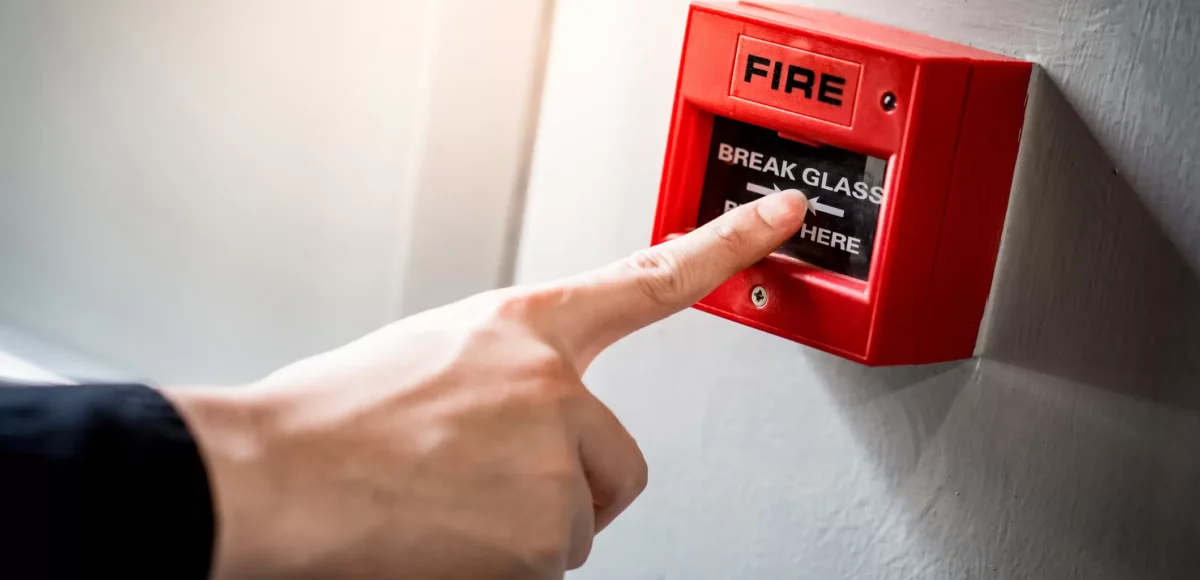
Fire Alarm System in Noida
Fire Alarm System in Noida: A Complete Buyer’s Guide for Homes, Offices & Industries
If you operate a business or manage a property in Noida, fire safety isn’t optional—it’s operational hygiene. A reliable Fire Alarm System in Noida protects people, property, processes and brand reputation, and it’s also central to getting statutory approvals and insurance coverage. This comprehensive guide—crafted for facility managers, builders, OEMs, startups, schools, hospitals, data centers and gated communities—explains how fire alarm systems work, how to choose the right technology, compliance essentials, installation best practices, budgeting, maintenance, and how Innovative Fire Protection can help you get it right the first time.
Why Noida Properties Need a Modern Fire Alarm System
Noida’s skyline blends high-rise residences, IT parks, malls, logistics hubs and manufacturing units. High occupancy, mixed fuel loads (paper, plastic, textiles, solvents), HVAC shafts, and server rooms increase risk. A modern, code-compliant Fire Alarm System in Noida delivers:
-
Early Detection & Evacuation: Detects smoke/heat at incipient stages, triggers alarms and voice evacuation to reduce response time.
-
Interlocking with Life Safety: Automatically starts pressurization fans, releases magnetic door holders, initiates elevator homing and unlocks emergency exits.
-
24/7 Monitoring: Supervises device health, wiring faults, loop integrity, and power supply to detect failures before they become life-threatening.
-
Insurance & Approvals: Streamlines Fire NOC, occupancy certificate processes and strengthens your insurance risk profile.
-
Data & Compliance: Generates event logs and reports for audits, drills and maintenance documentation.
How a Fire Alarm System Works (Simple Overview)
-
Detection: Sensors (smoke, heat, multi-criteria, flame, aspirating) constantly sample the environment.
-
Control & Decision: The Fire Alarm Control Panel (FACP) analyses signals, applies thresholds/algorithms, and verifies alarms.
-
Notification: Sounders, strobes, beacons and voice evacuation alert occupants with distinct tones/messages.
-
Integration: The panel triggers relays for AHU shutdown, lifts recall, fire-door release, gas suppression release (if applicable), and interfaces with BMS/SCADA.
-
Reporting: Events are logged, displayed on graphic annunciators, and optionally transmitted to a monitoring room or third-party station.
Key Components You Should Know
-
Fire Alarm Control Panel (FACP): The brain. Available as conventional, addressable, and networked addressable types.
-
Initiating Devices:
-
Smoke detectors: Photoelectric/optical (best for smoldering fires), ionization (rare today), multi-criteria (smoke + heat + CO) to reduce false alarms.
-
Heat detectors: Fixed temperature or rate-of-rise for kitchen/parking/harsh areas.
-
Aspirating (VESDA) systems: Active air sampling for early warning—great for data centers, archives, clean rooms.
-
Flame detectors: UV/IR for fuel handling areas and hangars.
-
Manual Call Points (MCPs): Break-glass units near exits and fire equipment.
-
-
Notification Appliances: Sounders, beacons, and Voice Alarm/PA for clear evacuation instructions.
-
Power Supplies & Batteries: Primary and standby power sized for alarm + supervisory durations.
-
Cabling & Accessories: Fire-resistant cables, junctions, isolators, loop cards, relays, graphic repeater panels.
-
Auxiliary Interfaces: Gas suppression release modules, sprinkler flow/tamper supervision, fire pump feedback, elevator controllers, AHU dampers.
Conventional vs Addressable vs Networked Systems
Conventional Systems
-
Best for: Small sites (retail shops, small offices, low-rise housing blocks).
-
How it works: Detectors on a “zone” circuit; panel identifies the affected zone, not the exact device.
-
Pros: Low cost, simple.
-
Cons: Less pinpointing; harder expansion; more nuisance-alarm tracing effort.
Addressable Systems
-
Best for: Mid/large offices, schools, hospitals, malls, manufacturing floors, high-rises.
-
How it works: Each device has an address. The panel shows exact detector location and status (alarm, fault, dirty, removed).
-
Pros: Faster pinpointing, event history, device health monitoring, better scalability.
-
Cons: Higher upfront cost, but lower lifetime cost due to efficient maintenance.
Networked Addressable Systems
-
Best for: Multi-tower campuses, tech parks, industrial estates.
-
How it works: Multiple panels across buildings looped on a network; central monitoring with local autonomy.
-
Pros: Centralized visibility, redundancy, campus-wide cause-and-effect.
-
Cons: Requires strong design, networking and documentation.
For most commercial/industrial needs, an Addressable Fire Alarm System in Noida is the sweet spot.
Detection Technology by Area Type
-
Office Floors/Classrooms: Photoelectric or multi-criteria smoke detectors; voice evac for clarity.
-
Server Rooms/Data Centers: Aspirating detection (VESDA) + early warning; integrate with clean-agent suppression (FK-5-1-12 / IG systems).
-
Kitchens/Pantry: Heat detectors or multi-criteria tuned to resist steam and aerosols.
-
Car Parks/Utility Rooms: Heat detectors, beam detectors in large volumes; CO detectors for ventilation control (separate but coordinated).
-
Warehouses/Showrooms: Beam detectors remove need for dense ceiling coverage; flame detectors for flammable liquids.
-
Hospitals/Hotels: Addressable with staged evacuation and clear voice messaging; gentle alarm strategies to avoid panic.
Codes, Standards & Approvals (India-Focused)
While specific local regulations update over time, design and installation typically align with:
-
National Building Code (NBC) – Part 4 (Fire & Life Safety)
-
BIS IS 3218 (Fire Detection and Alarm System—Code of Practice)
-
IS 2189 (Selection/installation for automatic detectors; older/related guidance in many orgs)
-
IS/IEC 60849 / IEC 60268-16 (for voice alarm/EN-54-16 style performance, where adopted)
-
State Fire Services & NOCs: UP Fire Service requirements for building types and occupancies.
-
Electrical & Cabling: Fire-resistant cables (FRLS/LSZH as specified), circuit integrity, segregation from power lines.
Pro tip: Choose products with third-party listings/approvals (e.g., UL, FM, LPCB, EN54) and match them with the Indian code framework referenced in your project’s approval path.
The Design Process We Recommend
-
Risk & Occupancy Study: Understand hazards (fuel load, ignition sources), head-count, evacuation routes.
-
Cause-and-Effect Matrix: Define logic: which alarm triggers which device (AHU shutdown, door holders, pressurization fans, lift recall, suppression release).
-
Device Layout: Detector spacing, beam obstructions, ceiling heights, wind/airflow effects.
-
Wiring, Loop & Voltage Drop Calculations: Ensure power integrity and survivability.
-
Voice Evacuation Strategy: Pre-recorded multilingual messages, phased evacuation by floor/zone.
-
Graphics & Signage: Floor plans at panels/repeaters; clear MCP and extinguisher signage.
-
Documentation: Single-line diagrams, shop drawings, datasheets, test plans, O&M manuals.
Installation Best Practices (So Your System Works on Day-1)
-
Cables: Use specified FR/FRLS/LSZH and red color coding where required; maintain separation from power cables; proper glanding and labeling.
-
Device Mounting: Respect heights, spacing, and manufacturer recommendations; keep detectors away from vents to avoid dilution.
-
Environmental Suitability: Use heat or multi-criteria detectors in kitchens or dusty areas; IP-rated devices for outdoors.
-
Loop Integrity: Use isolator modules to compartmentalize faults; avoid star topologies on addressable loops unless per design.
-
Panel Room: Clean, controlled environment; fire-rated cable entries; accessible to fire officers.
-
Integration Checks: Test interlocks with AHU, elevators, fire pumps, suppression systems, access control.
-
As-Built Documentation: Update drawings to reflect final cable routes and device addresses.
Testing, Commissioning & Handover
-
Pre-Functional Checks: Continuity, insulation resistance, battery load test, device addressing.
-
Functional Tests: Simulate detector activations, MCPs, sounder/strobe output, voice messages, relay interlocks.
-
Performance Tests: Audibility (dB levels), intelligibility for voice alarms (STI/CIS where applicable), visibility of strobes.
-
Training: Hand over O&M manuals, train security/FM teams on weekly checks and panel navigation.
-
Snag Closure: Track issues and close with documented re-tests.
-
Handover Kit: Approvals, NOC documents (where applicable), test certificates, device lists.
Maintenance & AMC: The Real Safety Net
A fire alarm is only as good as its upkeep. For a high-availability Fire Alarm System in Noida, adopt:
-
Daily/Weekly: Panel status, faults, power supply, random MCP test (as per SOP).
-
Monthly: Sample test detectors per rotation plan; verify sounders/strobes in selected zones.
-
Quarterly/Semi-Annual: Clean/inspect 25–50% of detectors; check device contamination levels (for addressable).
-
Annual: 100% device testing; battery capacity test; interlock re-verification; report & recommendations.
-
Documentation: Maintain test logs, fault tickets, corrective actions, and drill records for audits and insurance.
Innovative Fire Protection offers AMC plans with preventive maintenance, 24×7 emergency support, spares strategy, firmware updates, and compliance reporting—keeping your Fire Alarm System in Noida inspection-ready year-round.
Minimizing False Alarms (Without Compromising Sensitivity)
-
Select multi-criteria detectors in areas prone to steam/aerosols.
-
Commission with appropriate sensitivity levels; avoid “one-size-fits-all.”
-
Use dust caps during construction; schedule post-construction cleaning.
-
Place detectors away from supply diffusers, kitchens, and bathrooms unless suited.
-
Implement alarm verification where permitted and sensible.
-
Train occupants—burnt toast or incense under detectors is not a test!
Budgeting & Cost Drivers
Costs vary by size, complexity and compliance level, but typical drivers include:
-
System Type: Addressable vs conventional; voice evac vs tone-only.
-
Detector Mix: Standard smoke vs aspirating/flame; specialized spaces increase cost but reduce risk.
-
Device Density & Cabling: Larger floor plates mean more devices and longer cable runs.
-
Integration Scope: AHU/lift/door/fan interfaces, BMS graphics, campus networking.
-
Finishes & Access: Retrofits in high-end interiors need careful routing to minimize visible impact.
-
Service & AMC: Opt for multi-year AMCs to stabilize lifetime costs and spares availability.
A lifecycle view (CAPEX + OPEX) often favors addressable systems due to faster troubleshooting, fewer nuisance evacuations, and granular maintenance.
Sector-Specific Notes for Noida
-
IT Parks & Startups: Prioritize minimal downtime; addressable with networked panels; aspirating for server rooms; integration with access control and BMS.
-
Manufacturing & Warehousing: Mix of beam/flame/heat detection; ruggedization; zoning by hazard; voice evac for high ambient noise areas.
-
Hospitals & Hotels: Staged/sectoral evacuation; multilingual announcements; clear wayfinding beacons; patient/guest safety protocols.
-
Schools & Universities: Simple, intuitive MCPs and drills; voice clarity; supervised cabling to prevent tampering.
-
Residential High-Rises: Addressable per tower; repeater panels at the fire command center; pressurization and lift logic per code.
Smart & Connected Fire Alarms
-
Graphics Workstations: Real-time floor plans for guards, with device-level pinpointing.
-
BMS Integration: BACnet/Modbus gateways for centralized dashboards and alarms.
-
Remote Health Monitoring: Proactive fault reporting and AMC scheduling.
-
Analytics: Trend dirt levels, false alarms, and downtime to optimize maintenance.
Why Choose Innovative Fire Protection
-
End-to-End Expertise: Risk study → design → supply → installation → testing → documentation → Fire NOC assistance → AMC.
-
Code-Aligned Designs: Solutions aligned with NBC/IS standards and local authority requirements.
-
Addressable Specialists: From small offices to multi-tower campuses with networked panels.
-
Quality Components: Reputed, listed devices matched to your occupancy and environment.
-
Rapid Service: Local Noida–Greater Noida coverage, emergency call-outs, stocked spares.
-
Transparent Documentation: As-builts, device addressing tables, cause-and-effect matrices, training and SOPs.
When safety, uptime and compliance matter, partner with a specialist who treats fire protection as a mission-critical system—not just a checklist.
Quick Checklist: Getting Your Fire Alarm System in Noida Right
-
Conduct a proper risk assessment and occupant load study.
-
Choose the right system type (addressable for most commercial/industrial facilities).
-
Finalize a documented cause-and-effect matrix.
-
Use listed, code-compatible detectors, panels, cables and accessories.
-
Plan device placement per ceiling height, ventilation, and area use.
-
Integrate with HVAC, lifts, doors, pumps and suppression (if present).
-
Commission with full functional, audibility and intelligibility tests.
-
Train staff; schedule drills and keep logs.
-
Sign an AMC with preventive maintenance and response SLAs.
-
Keep your documentation updated and accessible.
FAQs: Fire Alarm System in Noida
1) Which system should I choose—conventional or addressable?
For most offices, hospitals, malls, schools and factories in Noida, an addressable Fire Alarm System is superior. It identifies the exact device in alarm/fault, scales better, and lowers lifetime maintenance.
2) How often should I service the system?
Do daily/weekly panel checks, monthly device sampling, and annual 100% testing. A formal AMC ensures proactive health checks, spares and documentation.
3) Can I integrate the alarm with HVAC and elevators?
Yes. Interlocks can shut AHUs to prevent smoke spread, initiate staircase pressurization, and recall elevators to the refuge floor/main lobby per your cause-and-effect matrix.
4) How do I avoid false alarms?
Use correct detector types (multi-criteria, heat, beam, aspirating), commission appropriate sensitivities, keep detectors clean, and follow post-construction cleaning and training.
5) Do I need voice evacuation?
Strongly recommended for high-occupancy buildings. Voice instructions reduce panic and improve egress times compared to tone-only alarms.
6) What documents help with approvals and audits?
Design drawings, single-line diagrams, loop/device lists, cause-and-effect, test reports, AMC logs, and training/drill records.
7) Are batteries really that important?
Absolutely. They power the system during mains failure. Size them per load for both supervisory and alarm durations; test annually.
8) What about data centers and server rooms?
Use aspirating (VESDA) for very early warning and integrate with clean-agent suppression. Coordinate with access control and BMS.
9) Can I retrofit in a finished office?
Yes. With careful cable routing, surface-mounted raceways or wireless modules (where acceptable), and phase-wise execution to minimize downtime.
10) How quickly can a project be delivered?
Timeline depends on size/complexity: drawings, approvals, supply, installation and commissioning. A clear schedule with milestones and access windows keeps it predictable.
Final Word
A well-engineered Fire Alarm System in Noida is an investment in life safety, business continuity and compliance. From risk assessment and design to installation, commissioning and AMC, Innovative Fire Protection delivers robust, code-aligned systems tailored to your building—and backs them with responsive local service and transparent documentation.
Need an expert assessment or a proposal?
Share your floor plans and occupancy details, and we’ll recommend the ideal system architecture, device schedule, and a step-by-step plan for installation and approvals.
FAQ
1. What is a Fire Alarm System and how does it work in buildings across Noida?
A Fire Alarm System in Noida is an electronic safety network designed to detect fire, smoke, or heat early and alert occupants before the situation escalates. It includes detectors, alarms, and control panels that monitor and communicate fire signals across the premises. When triggered, the system activates sirens, strobes, and evacuation messages to ensure safe exit. In Noida’s high-rise buildings and commercial complexes, these systems play a critical role in reducing response time, coordinating firefighting actions, and protecting both lives and property through early detection and prompt alerts.
2. Why is installing a Fire Alarm System in Noida mandatory for commercial properties?
Installing a Fire Alarm System in Noida is mandatory as per local fire safety regulations and the National Building Code (NBC) of India. Noida’s growing number of offices, malls, and factories require reliable fire detection systems to prevent loss of life and property. Fire authorities and insurance companies demand certified fire alarm installations for occupancy approvals and coverage. Beyond compliance, these systems enhance workplace safety, facilitate quick evacuation, and minimize downtime during emergencies. Innovative Fire Protection offers end-to-end design, installation, and maintenance solutions, ensuring your business stays compliant, secure, and always prepared for any fire risk.
3. What are the main types of Fire Alarm Systems available in Noida?
The main types of Fire Alarm Systems in Noida include conventional, addressable, and hybrid systems. Conventional systems divide premises into zones to indicate the fire area, while addressable systems pinpoint the exact device triggering the alarm. Hybrid systems combine both benefits for flexibility. For small offices or shops, conventional systems are cost-effective, while larger commercial or residential complexes prefer addressable models for advanced monitoring. Innovative Fire Protection provides tailored system designs, helping clients choose the right technology based on building size, risk level, and regulatory requirements to ensure maximum protection and early detection across all zones.
4. Which is better for my property — conventional or addressable Fire Alarm System?
Choosing between conventional and addressable Fire Alarm Systems in Noida depends on your property’s size and complexity. Conventional systems are affordable and suitable for small offices or residential blocks, identifying fire zones but not exact locations. Addressable systems, ideal for larger complexes or industries, offer real-time device-level alerts, easier troubleshooting, and reduced false alarms. They also support integration with HVAC, sprinklers, and BMS systems. Innovative Fire Protection recommends addressable systems for enhanced safety, faster response, and long-term cost efficiency. Our experts evaluate your site’s layout and hazard profile to design a customized, reliable fire alarm network.
5. How can I choose the right Fire Alarm System in Noida for my building?
Selecting the right Fire Alarm System in Noida starts with a fire risk assessment and understanding your building’s layout and occupancy type. For large commercial or industrial spaces, addressable systems are ideal due to their scalability and precision. Smaller premises can opt for conventional models. Always ensure the system is IS and UL certified, meets NBC Part 4 requirements, and is installed by professionals. Innovative Fire Protection conducts thorough surveys, provides compliance-based design plans, and uses top-rated components to deliver dependable fire safety solutions tailored to your property’s needs, ensuring both protection and peace of mind.
6. What are the components included in a modern Fire Alarm System?
A modern Fire Alarm System in Noida includes several components: smoke and heat detectors, manual call points (MCPs), control panels, sounders, strobes, and power backup units. Advanced setups may also feature flame detectors, aspirating smoke systems (VESDA), and voice evacuation systems. These devices work together to detect fire, alert occupants, and trigger safety mechanisms such as sprinklers or exhaust fans. Innovative Fire Protection integrates these components using addressable technology for accurate detection, minimal false alarms, and centralized monitoring. Our installations comply with national and international standards to safeguard Noida’s residential, commercial, and industrial infrastructures effectively.
7. How much does a Fire Alarm System installation cost in Noida?
The cost of installing a Fire Alarm System in Noida varies based on building size, detector type, and complexity. Small offices may spend between ₹50,000–₹1 lakh, while large commercial or industrial setups can range from ₹2–₹10 lakhs or more. Addressable systems cost higher initially but offer long-term savings through easier maintenance and precise fault detection. Innovative Fire Protection provides transparent quotations with design, installation, and testing included. Our experts assess site requirements and propose budget-friendly, code-compliant solutions that ensure maximum safety and long-term reliability without compromising quality or detection accuracy for your property.
8. What are the government or fire department norms for Fire Alarm Systems in Noida?
The government mandates that all commercial and high-rise residential buildings must have a certified Fire Alarm System in Noida as per NBC Part 4 and IS 3218:2013 standards. UP Fire Services require NOC approval based on installation, testing, and maintenance reports. The system must include smoke detectors, alarms, MCPs, and fire-rated cabling. Innovative Fire Protection ensures every installation adheres to these standards, providing complete documentation, test reports, and annual inspection support. Our compliance-ready systems simplify fire audits and help clients obtain Fire NOCs swiftly, meeting all regulatory and insurance requirements for safety certification.
9. How often should I service or inspect my Fire Alarm System?
Regular maintenance is crucial to keep your Fire Alarm System in Noida functioning optimally. Basic visual inspections should occur weekly, with detailed testing every six months. Annual comprehensive testing, including all detectors, call points, sounders, and control panels, is mandatory as per fire code standards. Dust, environmental changes, or loose wiring can reduce sensitivity, so preventive checks are essential. Innovative Fire Protection offers Annual Maintenance Contracts (AMC) to handle periodic inspection, device calibration, and fault rectification. Our technicians ensure your system remains reliable, compliant, and ready to respond instantly during a fire emergency.
10. Can Innovative Fire Protection design and install a Fire Alarm System for my office?
Yes, Innovative Fire Protection specializes in designing and installing Fire Alarm Systems in Noida for offices, malls, factories, schools, and hospitals. We begin with a detailed site survey, create customized layouts, and select the most suitable detectors and panels for your building. Our certified engineers ensure compliance with NBC, IS, and local fire department norms. Each project includes installation, testing, commissioning, and training for your staff. From small offices to large commercial complexes, we deliver scalable, smart, and reliable fire detection systems designed for rapid response and long-term operational safety in Noida.
11. What are the benefits of using an addressable Fire Alarm System in Noida?
An addressable Fire Alarm System in Noida offers advanced control and monitoring capabilities. Each device has a unique ID, allowing pinpoint detection of fire locations and instant fault alerts. It reduces downtime, minimizes false alarms, and simplifies maintenance through centralized diagnostics. Addressable systems can integrate with sprinklers, ventilation, and public address systems for comprehensive safety management. Ideal for commercial, institutional, and industrial buildings, they enhance life safety and compliance. Innovative Fire Protection provides certified addressable systems from top global brands, ensuring efficient installation, integration, and 24/7 monitoring support for complete peace of mind.
12. How do Fire Alarm Systems help in emergency evacuation during a fire?
A Fire Alarm System in Noida ensures quick and organized evacuation during emergencies. When detectors sense smoke or heat, the system activates sirens, strobes, and voice messages, guiding occupants to safety. Addressable systems help responders locate the exact area of fire, reducing confusion and improving rescue coordination. Integrated systems can trigger elevator recall, door release, and emergency lighting. Innovative Fire Protection designs alarms with pre-recorded evacuation messages in multiple languages for better clarity and response. Our systems prioritize life safety, ensuring every second counts when evacuating people from offices, schools, or residential complexes in Noida.
13. Can Fire Alarm Systems in Noida be connected to sprinklers and smoke control systems?
Yes, a Fire Alarm System in Noida can easily integrate with sprinklers, smoke control fans, and other fire suppression mechanisms. When the alarm panel detects fire or smoke, it can automatically activate sprinklers, close fire doors, and turn on exhaust fans to control smoke spread. Such integrations improve safety and comply with modern fire protection standards. Innovative Fire Protection provides intelligent, addressable systems capable of full interconnection with your building’s HVAC and fire suppression equipment. This coordination ensures faster containment, reduced damage, and enhanced safety for both occupants and assets during emergencies.
14. What are the common causes of false alarms and how can they be avoided?
False alarms in a Fire Alarm System in Noida are often caused by dust accumulation, steam, cooking smoke, or incorrect sensor placement. Using low-quality detectors or skipping maintenance also increases the risk. To avoid false alarms, opt for multi-sensor or addressable detectors that adjust sensitivity based on conditions. Innovative Fire Protection ensures proper detector selection, strategic placement, and calibration during installation. Our AMC plans include cleaning, testing, and software optimization to reduce unwanted activations. A well-maintained, professionally installed fire alarm system drastically minimizes nuisance alerts and ensures dependable, accurate detection when it matters most.
15. Are Fire Alarm Systems required for small offices and residential societies in Noida?
Yes, even small offices and residential complexes benefit from having a Fire Alarm System in Noida. Fires can start from electrical faults, kitchen appliances, or short circuits, and early detection can prevent major disasters. While large commercial properties require addressable systems, small setups can use compact conventional systems for affordable protection. Innovative Fire Protection provides scalable solutions for societies, apartments, clinics, and offices, ensuring compliance with local safety standards. Our systems offer peace of mind by providing instant alerts and safe evacuation guidance, protecting lives and property in smaller urban and suburban settings.
16. What certifications or approvals should a Fire Alarm System have in India?
A reliable Fire Alarm System in Noida should comply with IS 3218, IS 2189, and NBC Part 4 standards. Devices must be UL, FM, or LPCB certified to ensure international performance quality. The system should also meet UP Fire Service approval norms for commercial or industrial use. Innovative Fire Protection uses globally recognized, BIS-approved components and provides complete certification documents after installation. We handle design submissions, testing reports, and fire NOC support to simplify compliance for our clients, ensuring that your fire alarm installation passes inspections and adheres to all statutory safety requirements.
17. Does Innovative Fire Protection provide AMC (Annual Maintenance Contract) for Fire Alarm Systems?
Yes, Innovative Fire Protection offers comprehensive AMC services for Fire Alarm Systems in Noida. Our AMC plans include routine inspections, device testing, battery checks, software updates, and emergency fault response. Regular maintenance ensures your system stays compliant, functional, and responsive to fire risks. We provide quarterly and annual service reports to support Fire NOC renewals and audits. Our trained technicians ensure minimal downtime and quick resolution of any issues. Whether installed by us or another vendor, we maintain all brands and models to guarantee safety, reliability, and long-term performance across Noida’s diverse infrastructures.
18. How can smart or wireless Fire Alarm Systems improve safety in Noida’s high-rise buildings?
Smart and wireless Fire Alarm Systems in Noida offer flexibility, faster installation, and real-time connectivity. These systems transmit alerts instantly without the need for extensive cabling, ideal for high-rises or retrofit projects. They can send notifications directly to mobile devices and control rooms for quicker response. Innovative Fire Protection provides IoT-enabled fire systems with cloud monitoring, remote diagnostics, and analytics to enhance safety management. Our wireless solutions meet global standards and integrate with CCTV, BMS, and emergency communication systems, ensuring round-the-clock protection, faster detection, and efficient evacuation across Noida’s modern high-rise buildings.
19. What steps are involved in designing and commissioning a Fire Alarm System?
Designing a Fire Alarm System in Noida involves several key stages: risk assessment, layout planning, device selection, cabling design, installation, testing, and commissioning. It starts with identifying fire-prone areas and determining suitable detectors. Engineers then create zone maps and wiring diagrams. After installation, each device is tested for sensitivity, sound level, and communication accuracy. Innovative Fire Protection handles every phase—from site survey to final handover—with documentation, training, and compliance certification. Our commissioning process ensures that your fire alarm system is fully functional, reliable, and aligned with national and local fire safety standards.
20. How can I contact Innovative Fire Protection for a free Fire Alarm System site inspection in Noida?
You can easily schedule a free site inspection for a Fire Alarm System in Noida by contacting Innovative Fire Protection via phone, email, or our website. Our experts will visit your premises, evaluate fire safety risks, and recommend the most efficient detection and alarm solutions tailored to your building’s layout. We provide end-to-end support—design, installation, and maintenance—ensuring compliance with fire department norms. Whether you manage a commercial, residential, or industrial facility, our team delivers code-compliant, high-performance systems that safeguard lives and property with precision and reliability across Noida and Greater Noida.

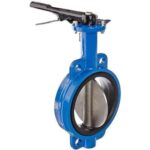
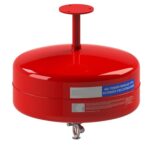
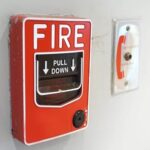

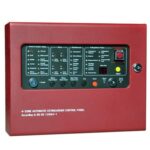
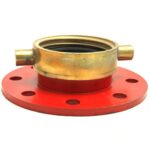



Leave a Comment